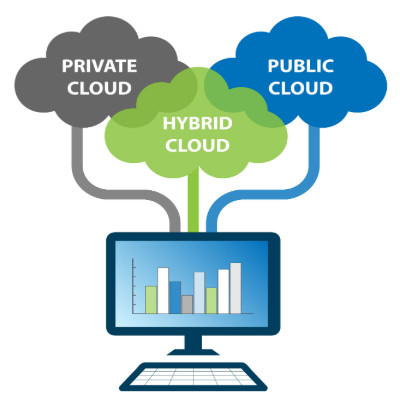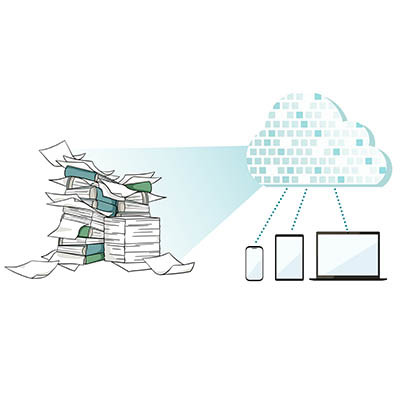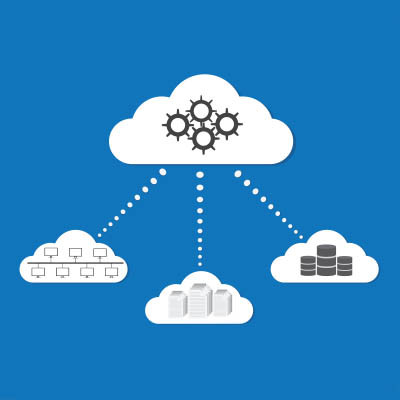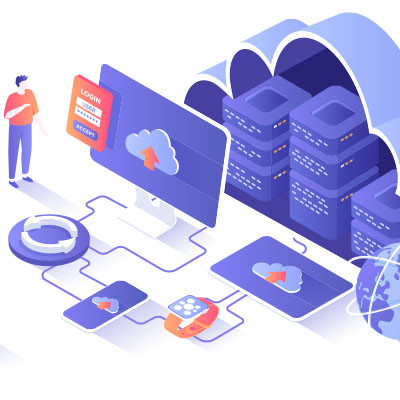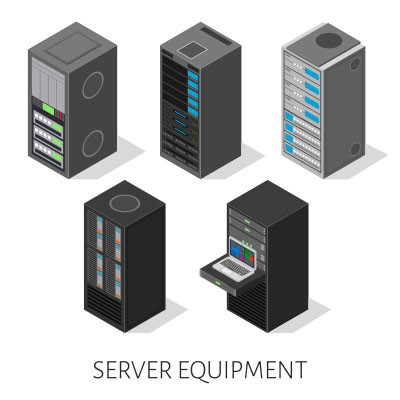Master Solutions Blog
Are you constantly looking to improve your small business and stay ahead of the game? Let’s talk about some tech that can seriously boost how you operate: artificial intelligence (AI), cloud computing, and cybersecurity.
How much does your business currently rely on the cloud? There are loads of ways to use it, but the best way is to find what works for your business, then double down on it according to your company’s specific needs. We’re looking at how the type of cloud can impact the way your business uses this flexible asset.
When a business uses the cloud for any reason, its cloud solutions and resources must be sufficiently reliable. Let’s examine what it is that makes the cloud reliable, and how to ensure you accomplish this essential baseline.
Decisive decision-making is a business staple. Without it, nothing would get done. Picking and choosing what to stay flexible about is one of the biggest question marks you can have when running a business. One aspect of your business that you always need some wiggle room in is your IT. This month, we take a look at what technology you should prioritize flexibility in and how to achieve that goal.
In a perfect utopia, you would never have to deal with random papers or sticky notes scattered all over your desk. Going paperless isn’t just trendy—it helps you stay organized, save money, and do something good for the environment. But what does it take to go fully paperless? Let’s take a look at a paperless strategy and what it can do for you.
Imagine a life with no random papers or sticky notes piling up on your desk. Going paperless isn’t just a cool trend—it’s a way to stay organized, save money, and help the environment. So what does it take to go 100% paperless? Let’s break it down.
Small businesses have unprecedented access to some of the most powerful technologies business has ever seen; ones that were once exclusive to large corporations. These tools not only boost efficiency but also effectively level the playing field, allowing smaller businesses to compete in markets they simply couldn’t have before. Let’s explore how these cutting-edge technologies are revolutionizing the way small businesses operate.
If you want to talk about the most important technology today, the cloud is definitely a big deal. The cloud helps businesses do things that used to only be possible for the biggest companies. Today, we’ll look at how small businesses use the cloud and the benefits they get from it.
File sharing is a significant part of communication today. Whether trying to send a meme to your friends or sharing a video that won’t send, it can be frustrating when sharing your file doesn’t work. In the business world, though, ineffective file sharing can be more than just an inconvenience—it can lead to costly miscommunication. Let’s explore two methods seen in small business file sharing and how they benefit your organization.
Cloud computing is one of the most powerful technologies that has emerged over the past few decades. It has shifted how individuals and companies access resources, manage data, and store information. With the opportunities to scale online vastly expanding, businesses that want to make the most of their technology can turn to the cloud to save money and improve operations.
The cloud is undeniably useful for most individuals and businesses, and its increasing use in business situations shows this. However, this doesn’t mean that it is the be-all and end-all for businesses. In this month’s newsletter, we thought we’d discuss some of the pros and cons of using cloud platforms inside a small business setting.
Cloud computing has allowed businesses to scale unlike any time before, all without breaking the budget. One such cloud provider is Amazon, and its Amazon Web Services platform allows businesses to manage their cloud computing needs. Today, we’re exploring some of the ways that AWS aids businesses with varied cloud computing needs.
You’ll go through various high and low points when you're running your business. That’s just part of the game; the unpredictability comes with running a business. You might lose confidence in your operations and wonder if you’re making the right calls—particularly with business technology. Thankfully, there are ways you can use technology that take a lot of the guesswork out of what the future holds for your business.
Businesses have done incredible things with the cloud, regardless of their chosen industries, sizes, and scopes. In particular, they have innovated to create opportunities for scaling growth and operations. How can your organization do the same? We want to help you implement a cloud solution that addresses all of your pain points. To do this, you can start by learning more about the differences between the public, private, and hybrid cloud solutions available to you.
Your business runs on its data, and as such, you need a sound strategy for sharing files and other important information to ensure collaboration goes off without a hitch. You must also do all of this while protecting your sensitive data. What are some best practices that SMBs can utilize for file sharing? Let’s go over them.
Small businesses might not be used to having high-quality or top-tier communication solutions available to them, but in today’s fast-paced business environment, they need them to keep up with the many challenges SMBs face. After all, SMBs need all the tools they can muster to outpace the competition. Let’s go over some communication tools that can help you get there.
The cloud is a remarkable innovation that can enable businesses of all industries and sizes to revolutionize their operations. Have you considered the cloud for some of your business’ infrastructure? If not, you could be missing out on serious operational benefits that could push your company even further. Here are four of the best benefits of cloud computing that we can think of for a modern business.
If you are a frequent reader of this blog, you know we talk a lot about the cloud and its benefits. Cloud computing plays a crucial role in enhancing mobile productivity by providing various services and features that empower users to access, collaborate, and perform tasks efficiently. Here are three ways in which the cloud contributes to mobile productivity.
Servers contribute a significant effort toward your computing infrastructure, so it makes sense that you want devices that can fulfill your needs with performance, reliability, and security. To get the most out of your server units, we like to recommend you consider the following six tips when choosing new server hardware.
With technology taking center stage for most businesses over the past couple years, you might consider yourself fairly knowledgeable about most business-related technology out there. Still, we want to cover five that are the most trendy and, coincidentally, pretty great for business, too. Let’s dive in.


